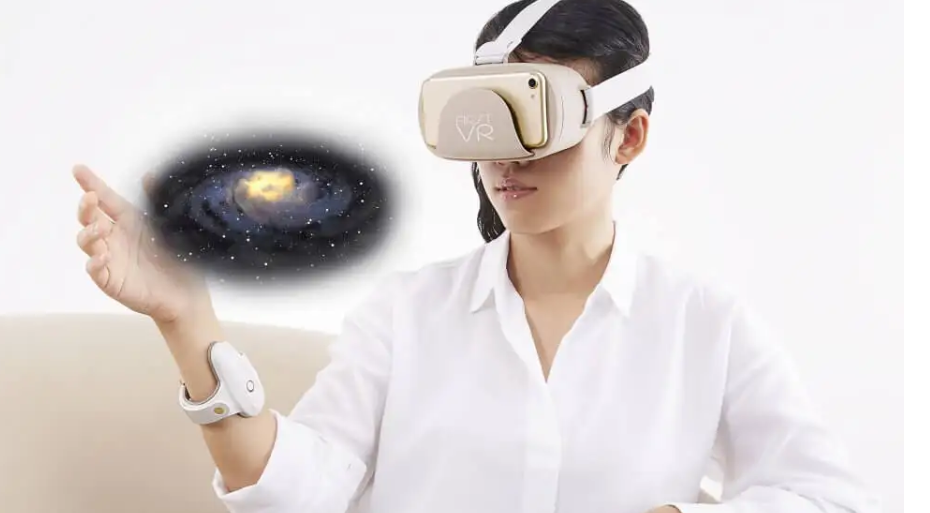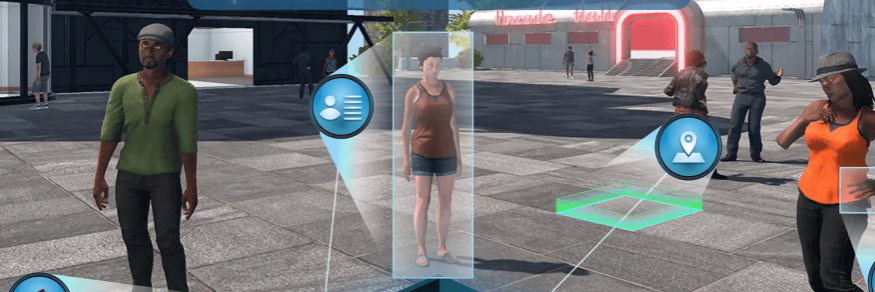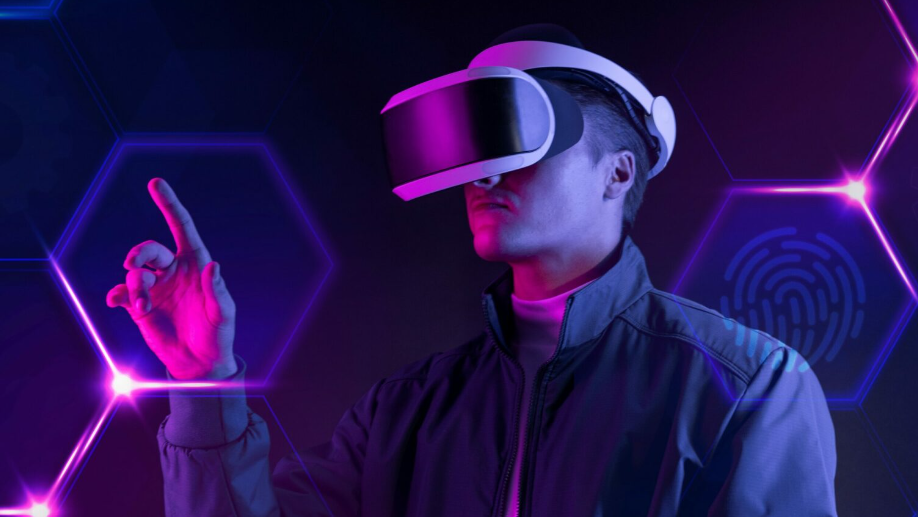In 2022, tech startups in the metaverse will continue to increase in number. At Evolvera, we’ve identified 5 of the most innovative and exciting startups in the metaverse space.
Background
By 2024, the metaverse may become an $800 billion market, according to Bloomberg Intelligence. They predict that more than $400 billion of this share will go to online games and gaming equipment, with the rest split between social media and entertainment. The banks will surely also enter.
But the biggest boom has come from tech startups that are entering the metaverse with energized thinking and creativity. The metaverse is still in its infancy (also depending on your definition of the term), but taking the risk of bringing new technologies and ideas into the virtual world is a surefire way to lay the groundwork for a potential unicorn.

Investors, however, have a good chance of big profits if one takes off. In the year 2022, participants in the metaverse are approaching the thousands, so we’ve compiled a list of the top 5 tech startups in this dynamic field that have already received first-round funding and are already collaborating with big companies.
But before we start…
Whether you’re a complete novice to the metaverse world or an expert, Tom Ffiske’s The Metaverse: A Professional Guide is an excellent overview that sets the stage for investing in the metaverse.
Let us begin. Here’s our list of the 5 best tech startups to watch in the metaverse space in the year 2022.
1. InWorld AI
In November 2021, Silicon Valley startup Inworld AI managed to raise $7.2 million in investment. Inworld’s AI technology makes it possible to create virtual agents capable of recognizing the environment and context in which they find themselves. Such characters can be used in various spaces, including the metaverse, VR/AR, or gaming. Ilya Gelfenbein, director of Inworld AI, is confident that commercial demand for the virtual capabilities offered by Meta and other companies will grow rapidly.
Previously, the company’s co-founders worked on API.AI, which was bought by Google Corporation and renamed Dialogflow. This artificial intelligence platform understands natural speech and enables the creation of virtual speakers. However, it is now part of the Google Cloud AI and Google Assistant Developer Platform.
But Inworld AI goes further and is much more ambitious. The team is working on a platform that will allow the creation of virtual characters capable of recognizing the environment and context in which they find themselves. Its artificial intelligence platform is undoubtedly the most advanced that exists in this area.
Why would InWorld AI be important in the future? Avatars are undoubtedly a key part of interaction in virtual space, so their presence in this space is significant.
2. Improbable / Msquared
The next startup on the list is UK-based Improbable. The company launched MSquared, which has raised $150 million to find ways for visitors from different metaworlds to interact. Improbable, a subsidiary of gaming startup M² (MSquared), will focus on developing Web3 to “bring large-scale metaworlds to life.” This interaction is based on the blockchain, where the ultimate goal is to make it possible for users to move their crypto assets and non-transferable tokens (NFTs) between digital worlds.

The new project will also work on metaworld compatibility to allow users to use the same items in different worlds. The project will use Improbable’s Morpheus technology, which enables detailed worlds of over 10,000 live players, as well as new Web3 tools and technology.
MSquared has already raised $150 million at its own $1 billion market valuation. The financing round was led by the venture capital fund Andreessen Horowitz and Softbank. Other participants included: Ethereal Ventures, SIG, Digital Currency Group, Mirana, and CMT.
3. AllSeated
The AllSeated startup launched in 2015 in San Francisco. Originally, the founders simply wanted to incorporate digital tools into event management, but now their platform has become a visualization powerhouse. In the early stages, users were limited to viewing and changing the 2D room or floor plan, dragging and dropping various items, and adjusting the guest list and seating plan.
But then the company realized that there was a demand for something more advanced than that.

Startup founder Sandy Hammer discovered that when an event is displayed in 3D, sales are greatly increased. For this reason, in 2018 a new product called “Vision” emerged that allowed AllSeated customers to view events in 3D.
Today, the platform is extremely advanced, and AllSeated offers customers to customize a variety of interior details. For example, you can choose furniture, colors of objects, tableware, and decorations. AllSeated is compatible with the Oculus Go, Gear VR and Vive.
According to PitchBook, the company raised $4.4 million in investment in February 2020, and investors poured another $7 million into AllSeated in May. At the height of the pandemic, when all events were held online, AllSeated introduced exVo, a virtual event platform, which has also seen success.
4. H2L
If you think avatar interaction is already an advanced feature in the metaverse, this upcoming release promises to take it to the next level when it comes to the sense of touch.
First appearing in 2012 with the support of industry giant Sony, Japanese company H2L has developed a device that allows you to feel physical pain in virtual reality. That’s right, pain. Not a slight rub on the shoulder, but actual pain.

The device comes in the form of a bracelet that records the contractions of human muscles, allowing the user’s avatar in the metaverse to repeat their movements and the person, in turn, feeling the presence and weight of objects. The technology is certainly advanced, but the bracelet uses electrical stimulation to affect the muscles in the arms, allowing the wearer to mimic the sensations of events in the virtual world, such as catching a soccer ball or doing a karate chop. . In this sense, with the H2L electrical stimulation device, people will be able to feel everyday things in the metaverse.
“The sensation of pain allows us to turn the metaworld into the real world, increasing the sense of presence and immersion,” says Amy Tamaki, CEO and co-founder of the Tokyo-based company. It plans to completely free humans from the constraints of space, time, and sensation by 2029.
5. Somnium Space
This latest startup comes from the Czech Republic. Somnium Space is an open social virtual reality platform built on the blockchain. Users can buy virtual land and build almost anything they want on the platform. For example, houses, cinemas, parks and schools. It is compatible with a VR headset, navigator or smartphone. It’s its own metaverse community.
But this is not any other part of the metaverse that we have seen. Oh no, this is one that users will be able to live on forever due to its “Live Forever” mode which is said to have been implemented after CEO Artur Sychov lost his father to cancer, according to CNET. The level of immersion in the metaverse of Somnium Space is, therefore, on another level and is built by the inhabitants themselves.

To build this world, they use special programs, such as Builder and UnitySDK. The first allows you to create physical objects, such as houses or decoration objects. The latter allows you to upload your own avatars and animations.
Somnium Space is certainly one to watch as the competition for the ultimate metaverse platform continues.












